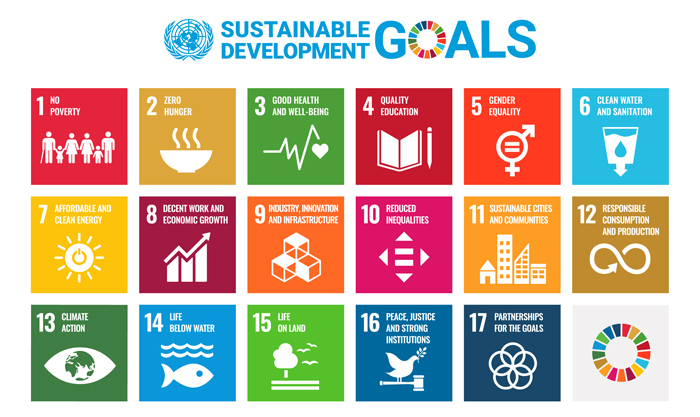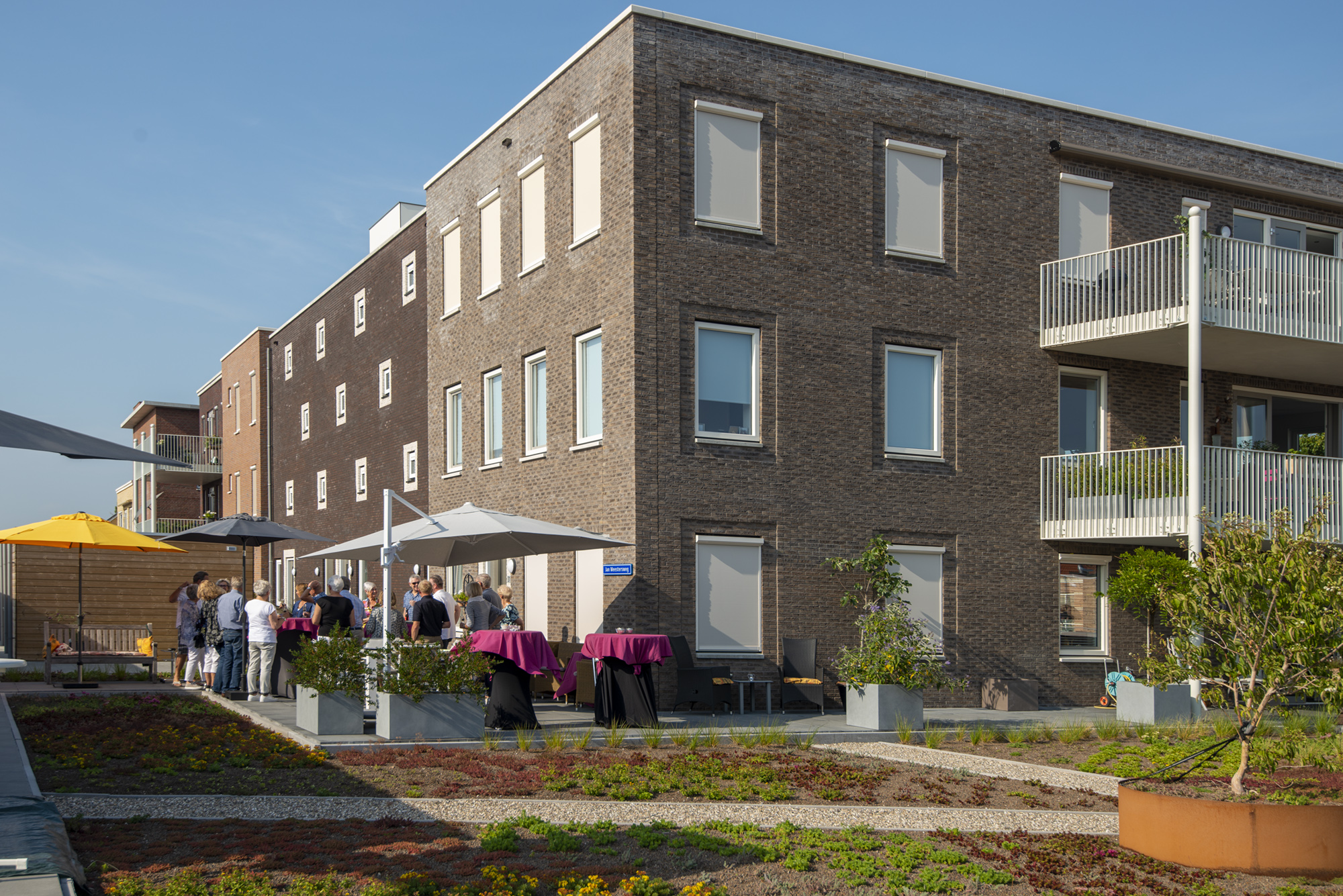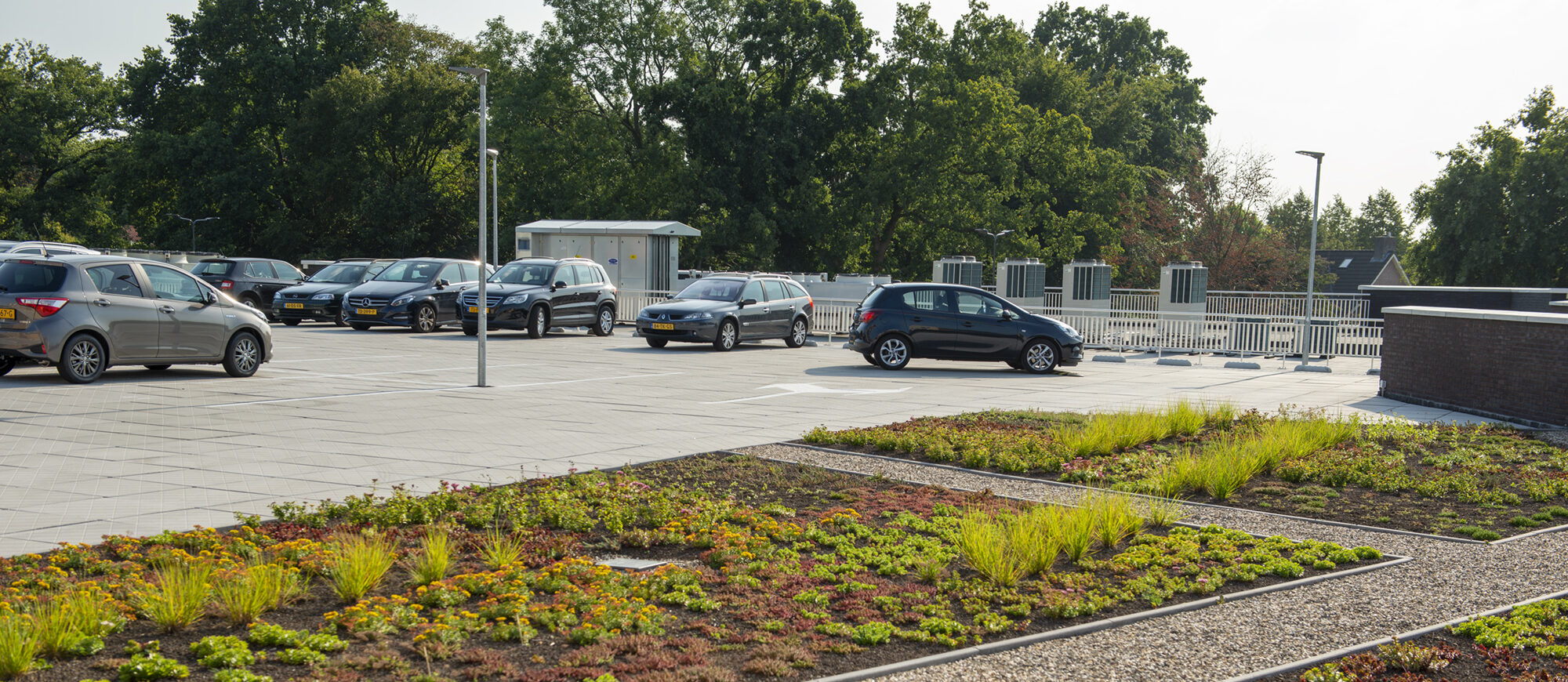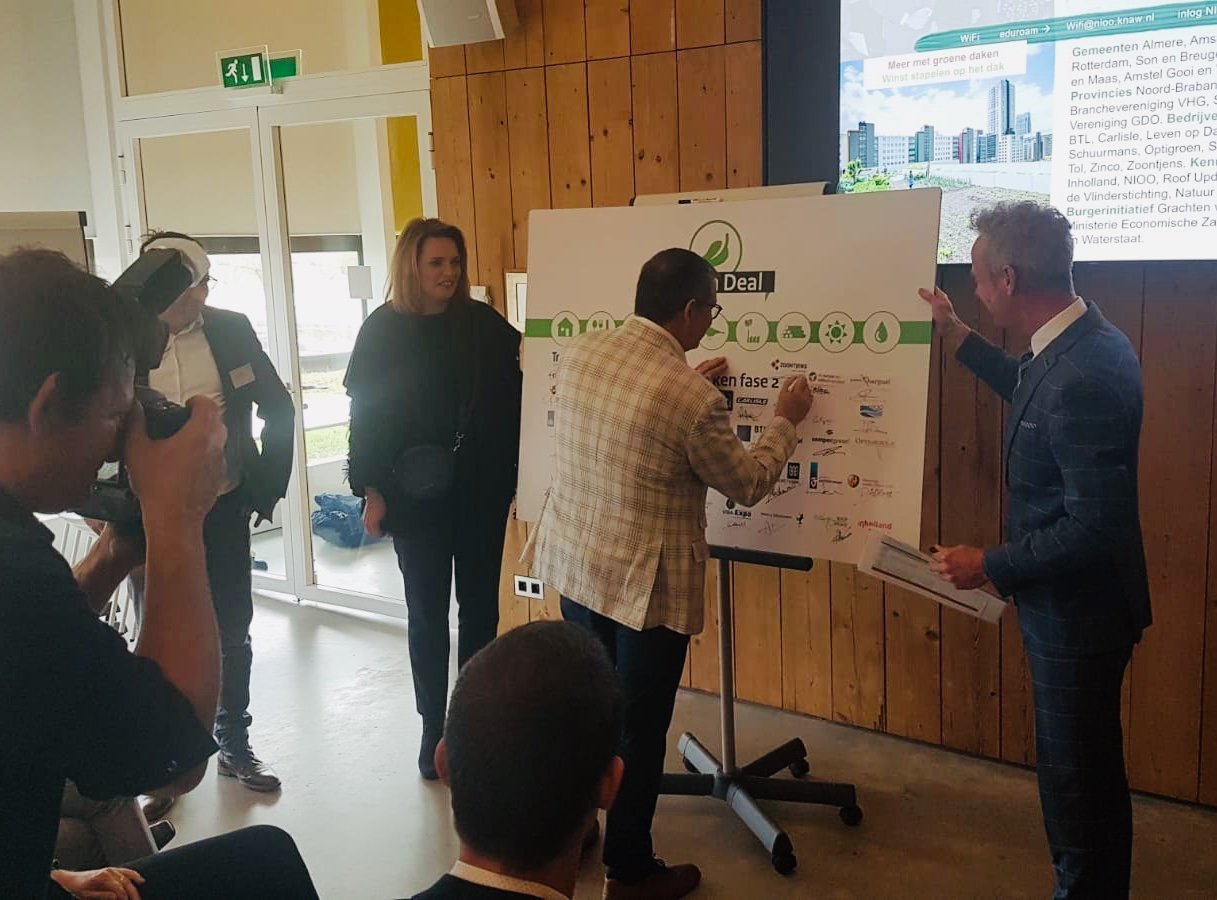The 17 goals
Sustainable entrepreneurship is not new to us. We have been constantly looking for the balance between ‘people, planet and profit’ for several years. And we keep asking ourselves the same question over and over again: “How can we continue to do well without losing sight of people and the planet?”


Sustainability is in our DNA
Innovation has been a part of Zoontjens’ DNA ever since the company started. As early as the late 1980s, we recognised that things had to become more sustainable. For example, we introduced the ‘environmental slab’ at the Bouwbeurs trade fair in 1993. Rubble replaced gravel as a raw material in this slab. We even received the ‘Bouwpen Award’ for this from Hans Alders, who was then the Dutch Minister for the Environment.
Nowadays, we use recycled raw materials wherever possible. And most system components can be recycled again at the end of their lifecycles. Examples are concrete and rubber granules, blast furnace slags, fly ash or lime granules. Pilot projects with our sister company Struyk Verwo Infra using geopolymer concrete are ongoing. Geopolymer is a binding agent that can completely replace cement, without any loss of quality. Being able to apply this to all concrete products will result in an extremely low CO₂ footprint. We are also participating in the Concrete Green Deal agreement between the Dutch government and Dutch companies to make the entire concrete supply chain more sustainable.
As part of a large global group of companies, it is not always easy to do everything sustainably, but we seize any opportunity that is open to us. We have signed the Concrete Agreement with Struyk Verwo Infra. This stipulates that the sector and the supply chain are committed to making concrete more sustainable. We do this in four areas: CO₂ reduction, circular economy, innovation & education and natural capital. By signing this agreement, we are making a promise both to the market and to ourselves.
Statutory standards
It is clear that sustainability was, is and will continue to be an important issue. That’s why we keep making our processes and systems more sustainable, in keeping with various statutory standards (ISO standards). We comply with all the environmental laws and regulations relevant to our industry and have developed an environmental management system to keep improving our performance in these areas wherever possible. We also hold an MRPI certificate for the Pardak®110 system. MRPI certification reflects the environmental profile of a product and provides an insight into the processes by which the product is made. Additional advantage: The Pardak® system also has a proven service life of at least 30 years, if maintained properly.


Like-minded partners
In addition to creating new applications and products, we also look for partnerships. We don’t always have to reinvent the wheel ourselves, but we can work together with parties that share our ambitions.”

